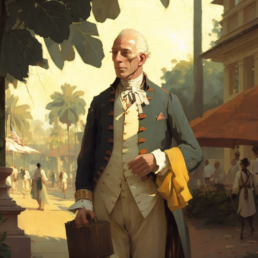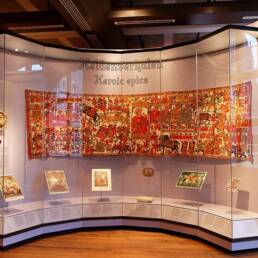Satish Kaushik is no longer with us, but his rich body of work will keep him alive forever.
It’s intriguing that his most popular character on the silver screen holds a story of passive resistance against dictatorship in Pakistan.
1980s. Pakistan. A group of young women made their way towards the local classical dance school. They were filled with excitement for their morning dance class. But as they approached the school, they were met with a barricade of police officers, armed and stern-faced.
One officer stepped forward, his voice booming over the crowd. “By order of General Ziaul Haq, all dance schools are to be shut down immediately. Dancing is now considered a form of immorality and is forbidden.”
The young women could hardly believe their ears. As they stood there in shock and grief, they knew that their lives would never be the same. For the dancers, it meant the end of their dreams and the beginning of a long and arduous fight for their right to dance.
The plot was the same everywhere. Around the country, dozens of dance academies were closed. A charming lad who was practising classical dance at PIA Arts Academy, was left with no prospect following the federal ban.To make a living, he had no choice but to become a cook.
Anwar Maqsood Sahab, a renowned Pakistani humorist and scriptwriter, was moved by this heartwarming tale. He was inspired to pen the legendary Pakistani TV drama Aangan Terha on the plight of the classical dancers who lost their jobs.
Aangan Terha was a remarkable satire of the times. Televised in 1984, it chronicles the story of a family, their cook, and their neighbors who were adversely affected by Pakistan’s authoritarian rule and military regime.
Akbar, the zingy cook of the family, was portrayed by the impeccable Salim Nasir. His demeanor, quick wit, and rendition of the role gave life to Akbar, a former and subtly-effeminate classical dancer who lost his job before working for the family as a cook.
The masterpiece that criticized the government through several social stories was only aired for 12 episodes before being abruptly canceled, yet Aangan Terha had become a runaway success in both Pakistan and India. Satish Kaushik – was one of its ardent followers.
He was also the assistant director of the 1987 blockbuster Mr. India. Satishji, while working with Javed Akhtar, came up with a wonderful idea to develop the character of the cook who serves as Mr. India’s personal assistant.
One of Satishji’s favorites was the exciting, endearing character of Akbar, the cook from Aangan Terha. He was the inspiration behind his swift sketch of the cook for his new movie.
As the character of the cook developed, Satishji was further inspired by his father, who had met a Rajasthani merchant who frequently used the pet-phrase – Calendar.
And so the flamboyant character of Calendar was born. Adored for decades since Mr. India’s release for his impeccable comic timing and his loyalty to his dear friend in the resistance against the foreign tyrant, Calendar left an indelible mark on our collective consciousness.
Today, no one remembers the likes of classical dancer-turned-cook Akbar, nor the visionary satirical drama Aangan Terha that played a significant role in upholding a quiet resistance against dictatorship in Pakistan.
Yet, the timeless character of Calendar preserves memories of both Satishji and the unfortunate Pakistani dancers, who had to struggle for their right to dance, for years to come.
Sources:
- Anwar Maqsood Shares The Story Behind Aangan Terha, the brown identity, https://thebrownidentity.com/anwar-maqsood-shares-the-story-behind-aangan-terha/amp/
- Komal Nahta interview with Satish Kaushik in Aur ek Kahan show video, Shemaroo Entertainment
- The unchanging reality of male dancers in Pakistan, Sheema Kermani, https://journals.charlotte.edu/sadi/article/download/1474/1231
Image Attributes:
- “Profile of PTV drama series ‘Aangan Terha'”. vidpk.com (web.archive.org)
- Lead image courtesy: https://youtube.com/@kishorekumar3121
- Anwar Maqsood, BBC Urdu, CC BY 3.0 from Wikimedia Commons




